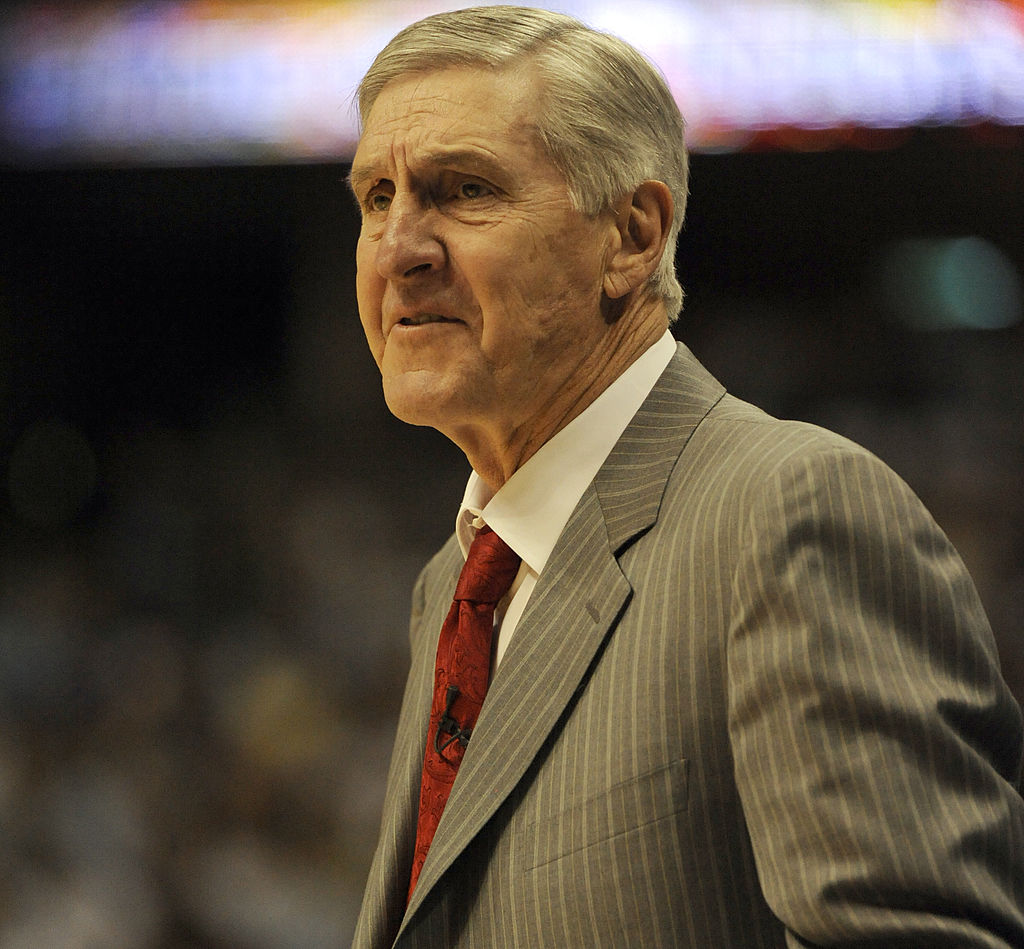NBA
Hall of Fame Utah Jazz Coach Jerry Sloan’s Health Is Failing According to Karl Malone

To say Karl Malone and former Utah Jazz coach Jerry Sloan have a special bond is an understatement. Both arrived in Utah the same season, 1985-86, Malone as the team’s first-round pick and Sloan as an assistant coach. For Malone’s 18 seasons in Utah, Sloan was a familiar face on the bench serving as a coach the entire time. Today, years after both retired, Malone said his former coach isn’t doing well.
Karl Malone and Jerry Sloan developed special bond
RELATED: What Happened to Utah Jazz Legend Karl Malone?
It’s not often that the careers of a coach and player parallel one another. More often than not, one of the two ends up leaving the organization, whether it’s via trade, a contract ends, or in the case of the coach, he gets fired. For Karl Malone and Jerry Sloan, the fact that the two arrived in Utah at the same time is coincidental, but the fact that they both stayed for as long as they did is a miracle.
Early in the 1988-89 season, Sloan took over as head coach for Frank Layden, who moved to the front office. While Malone had performed well under Layden, Sloan’s introduction as the man in charge took Malone’s game to the next level. Sloan implemented an offense that featured Malone and point guard John Stockton working together, running the pick and roll to perfection. That combination of coaching and talent resulted in years of winning basketball.
Under Sloan’s tutelage, the Jazz ascended to heights never achieved before and never achieved since. At their peak, the Jazz were the kings of the Western Conference from 1996-1998, where they had the misfortune of matching up with the Eastern Conference champ and dynasty-bound Chicago Bulls in the NBA Finals, losing both times. Impressively, the Jazz made it to the Western Conference finals on three other occasions during that same time period.
After the 2002-03 season, Malone ended the 18-year coach-player partnership heading off to play for the Los Angeles Lakers for his final NBA season.
Sloan suddenly resigns and Malone comes to his defense
RELATED: Michael Jordan Pushed Off Bryon Russell in 1998, Utah Judge Ruled 19 Years Later
In February 2011, Sloan and assistant Phil Johnson suddenly resigned from the club mid-season. Speculation swirled that Sloan and conflicts with players led to his surprise departure. The veteran coach downplayed reports and said it was just time for him to go.
The night after Sloan departed, Malone was in town and present for a Jazz game, when he was bombarded with questions from reporters. Malone, never one to shy away from the cameras and always ready to speak his mind, didn’t hold back.
“The man I know, the coach I know, doesn’t quit anything,” Malone said, implying Sloan’s decision wasn’t his own. He also addressed rumors of player conflicts. “For people to say Coach Sloan didn’t practice much, guess what? You’ve got to have guys that want to practice.”
Malone, clearly bothered by the events, thought his former coach, the organization, and its fans deserved better.
Jerry Sloan’s failing health
In 2016, Sloan told The Salt Lake Tribune he was suffering from Parkinson’s disease and Lewy body disease. Parkinson’s is a progressive neurological condition that is characterized by “slowness of movement, rigidity, and tremor. Balance and gait problems may occur later in the course of illness.”
Lewy body disease causes dementia and other symptoms such as hallucinations, fluctuations in alertness and attention and slowed movement and tremors, according to the Mayo Clinic.
During the final night of The Last Dance, Malone and numerous other NBA players, including Stockton, participated in a live stream on the NBA Twitter page talking about their careers during the Bulls 1997-98 season. At the end of the broadcast as the players were saying their goodbyes, Malone made it a point to mention his 78-year-old Hall of Fame coach.
“I need to say this because I know that (John) Stockton and I have been talking a lot recently. Coach (Jerry) Sloan is not doing well, so I want you guys to pray for coach Sloan.”
What the pair achieved on the court is recorded in the history books and will always be remembered by basketball fans. More importantly, however, their 35-year long relationship summarizes sports beautifully by showing while on-court achievements may be nice; they are fleeting. It’s those relationships formed while playing, if managed properly, that can last a lifetime.











